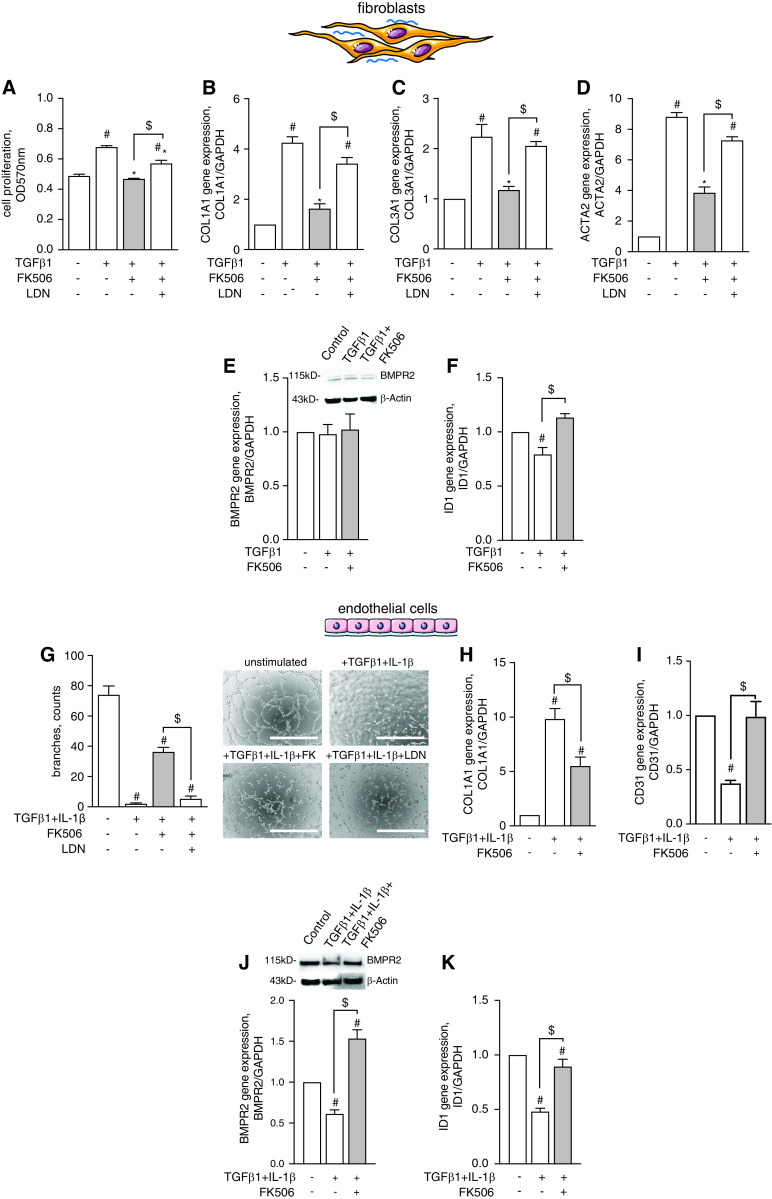Figure 5.
FK506 reduces cardiac fibroblast proliferation and collagen production and preserves endothelial cell function in a BMP pathway–dependent manner. (A–D) Human cardiac fibroblasts were activated by TGFβ1 (10 ng/ml) treatment to induce hyperproliferation (A), collagen 1A1 and 3A1 production (B and C), and procontractile function, which was assessed via quantification of ACTA2 expression (D). Cotreatment with FK506 (15 ng/ml) blocked hyperproliferation and collagen production and decreased contractile function in a BMP-dependent manner, as coadministration of LDN-193189 attenuated the FK506 effects. (E and F) FK506 had no effect on BMPR2 gene and protein expression (E) but restored ID1 gene expression in TGFβ1-treated cells (F), demonstrating effective BMP pathway activation. n = 3 experiments. One-way ANOVA followed by Tukey’s multiple comparison post hoc test. #P < 0.05 versus unstimulated control. *P < 0.05 versus TGFβ1. $P < 0.05 versus LDN. (G–I) Stimulation of human coronary artery endothelial cells (hCAECs) with TGFβ1 and proinflammatory IL-1β (10 ng/ml) decreased endothelial cell tube formation capacity (G), increased collagen production (Col1A1) (H), and reduced endothelial marker gene expression (Cd31) (I). FK506 treatment preserved tube formation capacity in a BMP-dependent fashion, reduced collagen production, and maintained endothelial cell fate. (J and K) In hCAECs, FK506 administration increased BMPR2 (J) and ID1 expression (K), confirming its potency to activate BMP signaling in this cell type. n = 3 experiments. One-way ANOVA followed by Tukey’s multiple comparison post hoc test. #P < 0.05 versus unstimulated control. $P < 0.05 versus TGFβ1+ IL-1β. Scale bars, 100 μm. TGFβ1 = transforming growth factor β-1.

